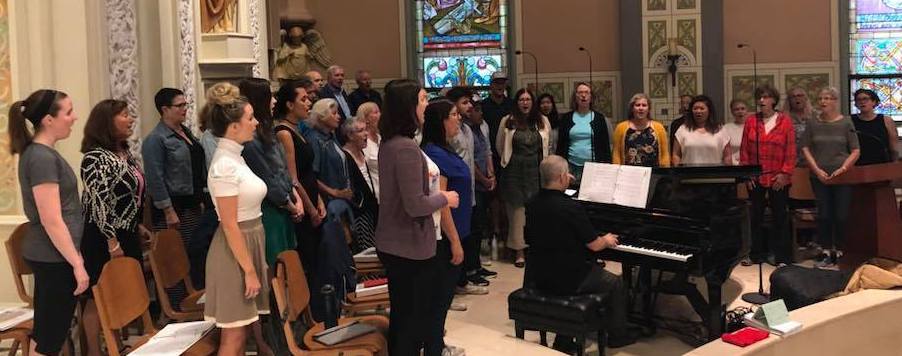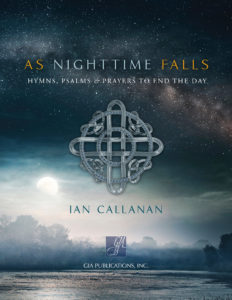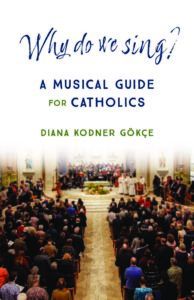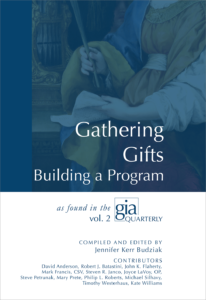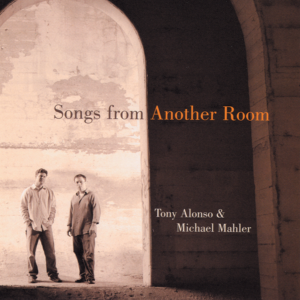(I had somehow always thought that the quote above, “Well begun is half done,” was from Mary Poppins or something like that, but when I looked it up for this post, it turns out it’s Aristotle. Go figure. As much as I try to read, my ignorance remains legion…but it’s still a great quote expressing an important reality.)
For those of us who take the summer off, we are probably gearing up right about now for our first choir rehearsals of the season–if it hasn’t already happened. Even many churches who continue to have their choirs sing through the year will often take the summer off of rehearsals, singing easier or more familiar music through the season, and may be on the verge of getting started again with weekly practices.
So I’m curious–how do y’all* approach this first rehearsal? What do you try to accomplish? Do you rehearse for a few weeks before the choir starts singing on Sunday? Do you even take the summers off at all? Do you, like me, spend weeks stressing and planning and figuring out how those first few meetings with your choir will go, knowing that they will set the tone for the next 9 or so months?
For what it’s worth, here’s how I’ve always done it:
I begin rehearsing the choir at least two (sometimes 3) practices before the first time they are in front of the congregation. This is really important, and I recommend it to everyone. Choir rehearsals aren’t just about each person learning their own music–they are also about the ensemble, finding a collective sound, getting used to each other, and becoming a unit; that can’t be done in one 90 minute gathering that also includes trying to get the music set for Sunday. So the first rehearsal or two are usually heavy on the warm-ups and vocal exercises, with a lot of canon singing and tuning and collectively remembering what it’s like to sing together. Since I’m also someone who likes to plan out the whole musical and choral year before we start the season, I also like to spend some time in this first rehearsal introducing them to some of the new octavos that we will be learning through the year–sort of a “coming attractions” kind of thing. (Especially that challenging anthem for Christmas Eve.) Then we also get started on the first month or so of planned music for the season–not just the first Sunday they will sing, but at least 3-4 weeks beyond that.
Here’s the thing: It doesn’t matter how accomplished your choir is, and that they can adequately learn their music for the coming Sunday in just one rehearsal. But I can guarantee that, whatever level they sing at, from the smallest beginner group to the most elevated professional cathedral choir–however good they are in one rehearsal, they will be better if they have two. Even if the total time spent is exactly equal–you can spend 30 or 45 minutes on a piece in one go, but that won’t be as valuable as 20 one week and 25 the next. It takes the human brain time to process stuff, and if we don’t give it that time, it won’t perform at optimal levels. Once the season is going, for every 90-minute rehearsal I hold will spend maybe a third of the time on this Sunday, at most, and the rest on the music for the Sundays that follow. If it’s the Thursday before an anthem is supposed to be programmed, or a new song for the assembly introduced, and the choir doesn’t know it yet–that’s a problem. But it’s a problem I can always see coming, because we practiced it last week, and the week before, and as many weeks before that as were necessary. So, this approach can work really well, but it is only possible with good planning, and a real view and vision of where you’re going with the group.
And of course, after the first rehearsal, we have social time–whether at the local pub after rehearsal or (better!) snacks and drinks brought in by members of the choir, or (best!) both.
So, how do y’all do it? Any other tricks or pearls of wisdom to share?
–Jennifer
p.s. For a lot of stuff about nuts and bolts rehearsal pacing and planning, I’d recommend checking out Michael Kemp’s Igniting Choral Rehearsals with Efficiency, Artistry, and Motivation. It’s a really good book, full of tools for the toolbox…
*I live in Chicago now, but I grew up in Maryland, which is technically south of the Mason-Dixon line, and “y’all” has been a part of my vocabulary forever. People here in the North occasionally deride me for it, but I’m not apt to change at this point, and y’all may just have to deal with it. 😉

